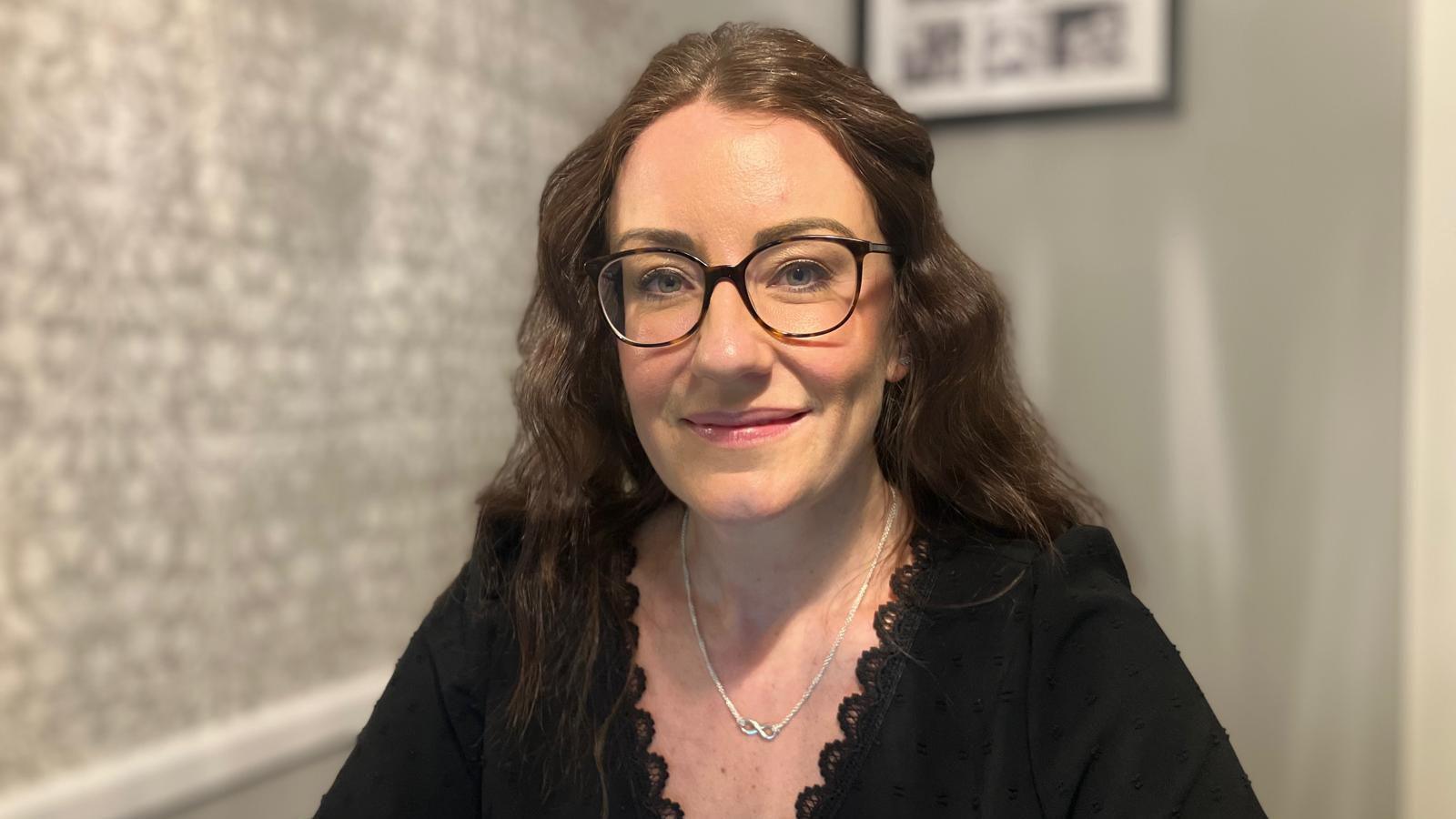'Workforce losing valuable women to endometriosis'
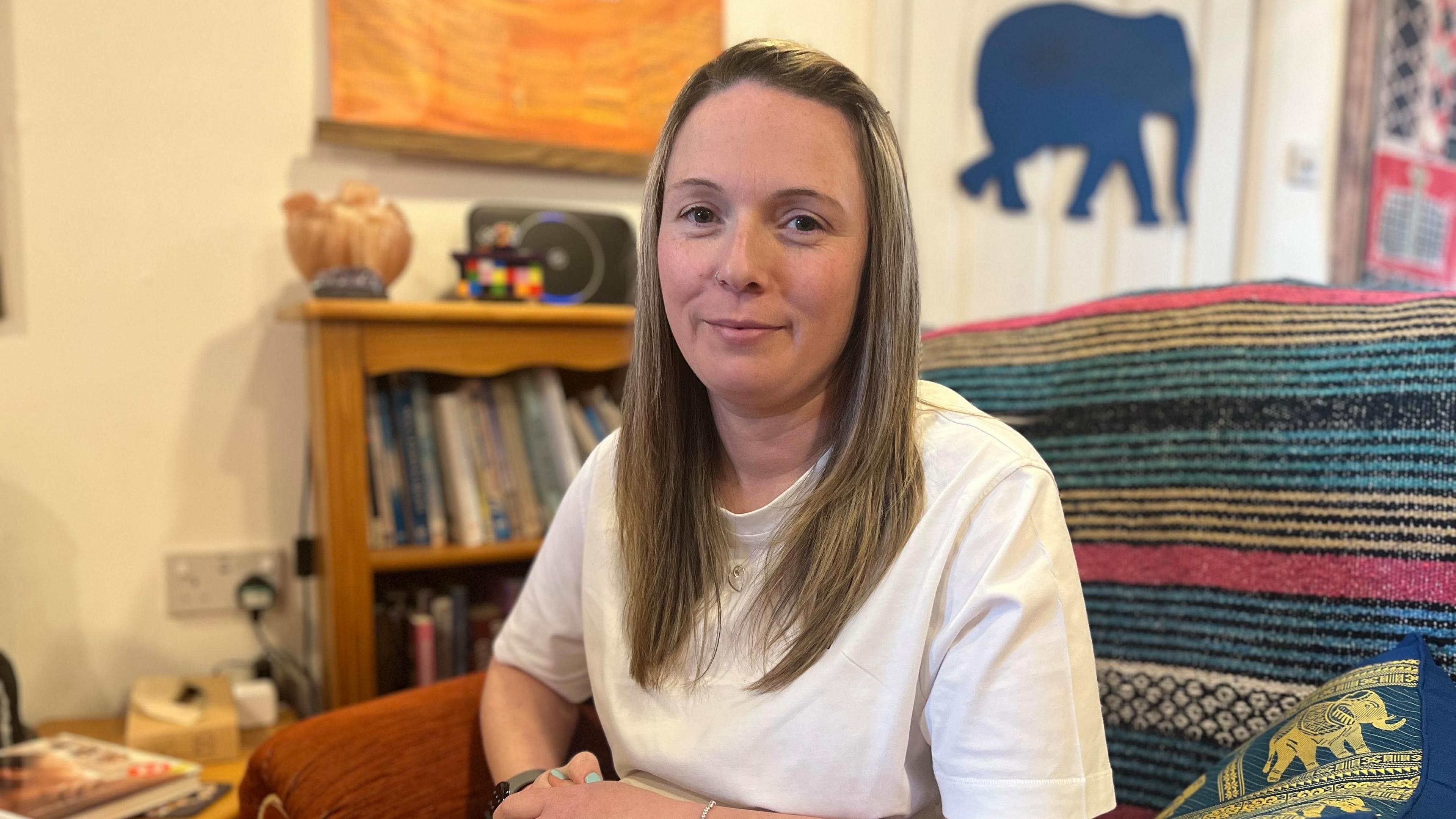
Steph Bunce says she was dismissed from her "dream job" after spending long periods off work in hospital
- Published
"Valuable women with amazing skillsets" are being lost from the workforce due to endometriosis.
That was the warning from officials at a trust running a new support group for women suffering from the condition.
The condition can cause, external extreme pain, excessive bleeding and those who have it say it can affect their work prospects.
Steph Bunce, 35, from Derby, first started experiencing symptoms in school and was left a "shadow of her former self" when she lost her "dream job" due to having too much time off work dealing with the pain of her condition.
"I was in and out of hospital," she said. "My minimum stay was around two and half weeks... just literally through the pain."
At one point, the chronic gynaecological condition - in which cells similar to those in the lining of the womb grow in other parts of the body - caused Steph to be on her period for a year.
'I was dismissed from my dream job'
- Attribution
New endometriosis pill approved on NHS in England
- Published13 March
A surgery to try and remove the tissue that had spread to Steph's other organs went badly, resulting in a two-month stay in hospital.
"Work were saying... you're not in a position when you can work for us any more," said Steph.
"This was a dream job, I hadn't long started.
"[I] had the support at the beginning from the employers. Then it shattered, and there was no support.
"More needs to be done... you feel alone, you feel like you're going crazy."
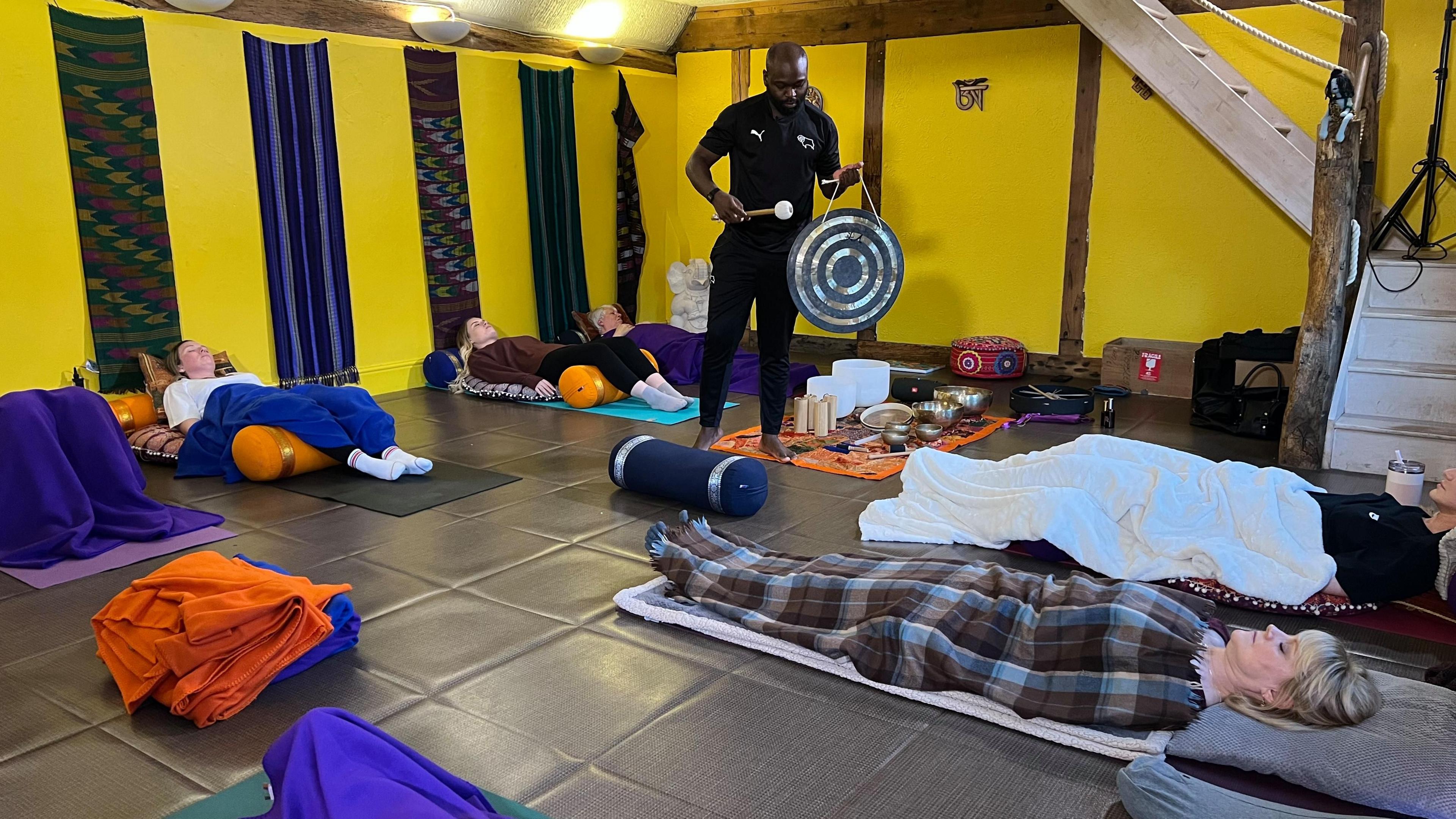
A local charity has started hosting classes like sound baths, designed to relieve symptoms
In a week where the government is focusing on getting people back to work because of a growing welfare bill, partially due to a rise in people on long-term sickness leave, the women who attend the new support group in Derbyshire say more can be done to invest in endometriosis support.
Research shows, external women's earnings drop after they are diagnosed with the condition, with some leaving the workforce altogether.
Following diagnosis, women were also found to take lower paying jobs or work fewer hours.
The NHS says it is working to improve waiting times and investing more in women's health hubs.
Derby County Community Trust, the charity arm of the Championship football club, recently started putting on movement classes designed to relieve symptoms, in Draycott.
It also offers workshops where women can come and ask for advice, including on how to deal with employers.
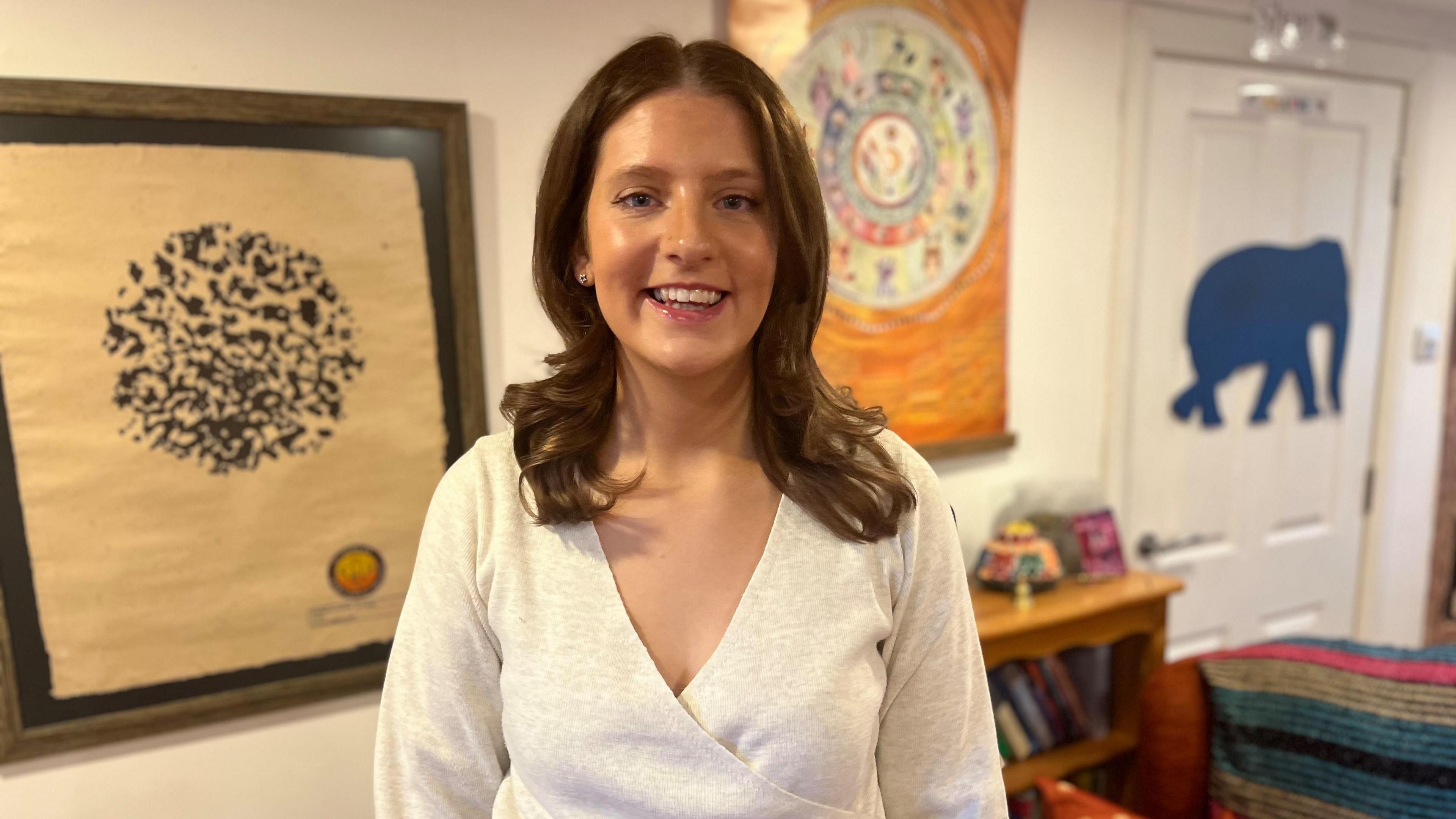
Hannah Stanier says the government can do more to support women with the condition who want to work
Hannah Stanier, from the Derby County Community Trust, oversees the new support group.
She says current levels of support, both in the workplace and in-person support groups like theirs that help women stay afloat, "doesn't even scratch the service" of what needs to be done.
"It needs more funding, more research, more time, more care - it completely needs looking into," she said.
"You're losing valuable women with amazing skillsets from the workforce, the knock-on effect of that is huge.
"These are women that want to work, have amazing skills and careers, and they can't through no fault of their own."
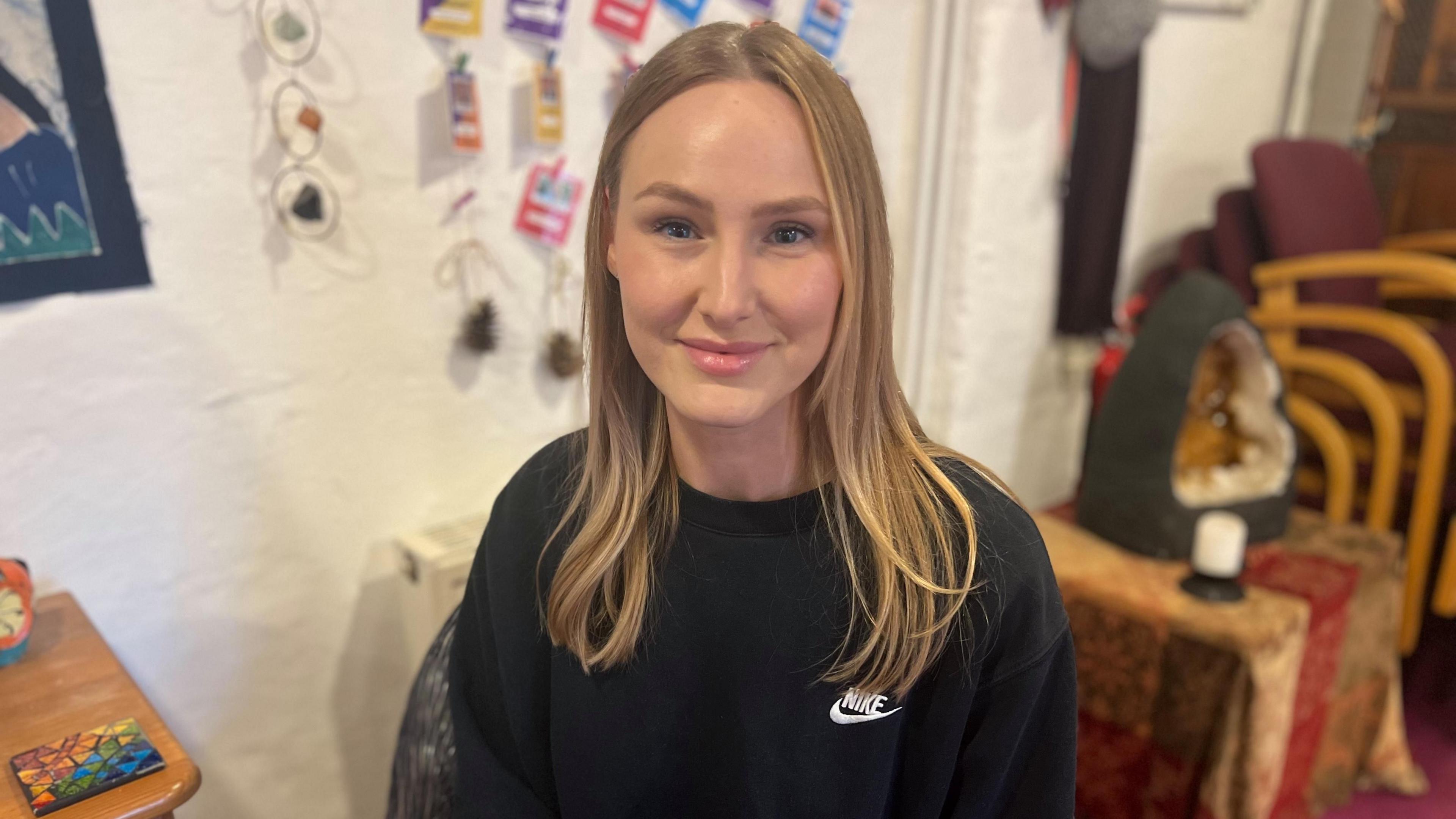
Gina Clark, from Nottingham, says she's worried future employers won't be as supportive of her needs
Gina Clark, 35, from Nottingham, says she has had painful periods from a very young age and spent years on different contraception medication to try and manage the pain.
She says "all hell broke loose" when she and her partner decided to try for children.
She came off contraception and her pain levels increased "exponentially".
"I would lie in the foetal position on the floor in my office having [remote] meetings because the pain was that bad," she said.
A scan Gina says she had to "hound" her GP for eventually revealed a tennis ball-sized mass on her ovary.
It was initially misinterpreted as ovarian cancer, but eventually diagnosed as endometriosis.
Throughout the time she spent navigating the NHS, she had to pull out of a promotion opportunity - but says she is "fortunate" to have an employer who is more understanding than most, and currently works from home full-time.
However, she is also nervous about her future career prospects as a result.
"[I feel] trapped... because when you get an employer that's that good and that understanding, I'm scared to move," she said.
"There will come a time when I want to get another job, I want to progress."

Derby North's Labour MP Catherine Atkinson says she's concerned over the stories women have told her
Derby North MP Catherine Atkinson says she feels "real frustration" about the stories of the women in Draycott, and is particularly concerned about alleged workplace discrimination.
However, she said the government was focused on making improvements to sick pay and flexible working.
She added: "Many women that I have met have felt real discrimination at work because of their condition, and I am so pleased that this government is taking real action to ensure we don't have that unfair treatment at work.
"Support for women when it comes to frankly the really poor experience they've had, especially the doubling of the waiting times under the last government, this is absolutely a priority, we want to see waiting lists down, we want to see this treated with the seriousness it deserves."
A government spokesperson added: "For the first time, we will deliver statutory sick pay for up to 1.3 million of the lowest earners who previously received nothing, and ensure employees have the right to payments from the first day they are ill."
Get in touch
Tell us which stories we should cover in Derby
Follow BBC Derby on Facebook, external, on X, external, or on Instagram, external. Send your story ideas to eastmidsnews@bbc.co.uk, external or via WhatsApp, external on 0808 100 2210.
Related topics
- Published9 August 2023
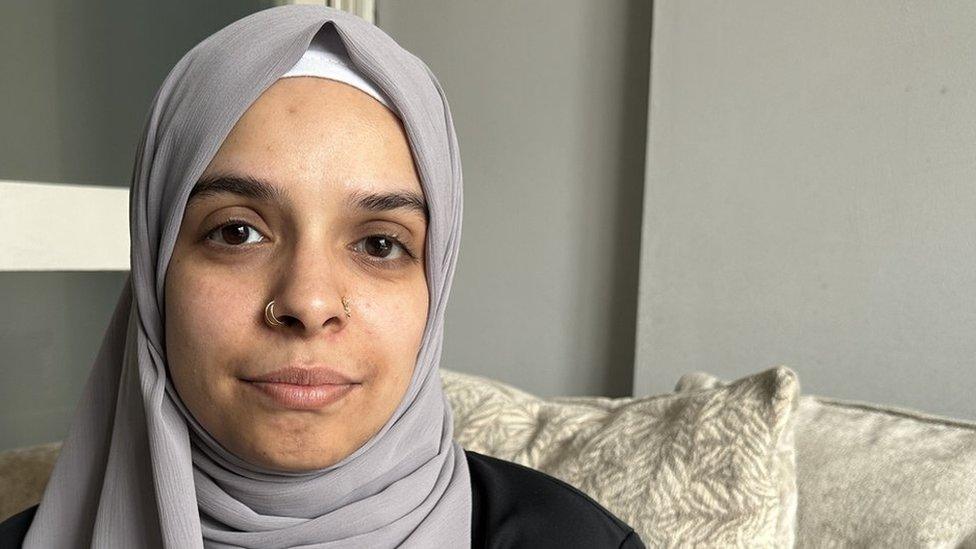
- Published25 February

- Published5 February

- Published16 January
